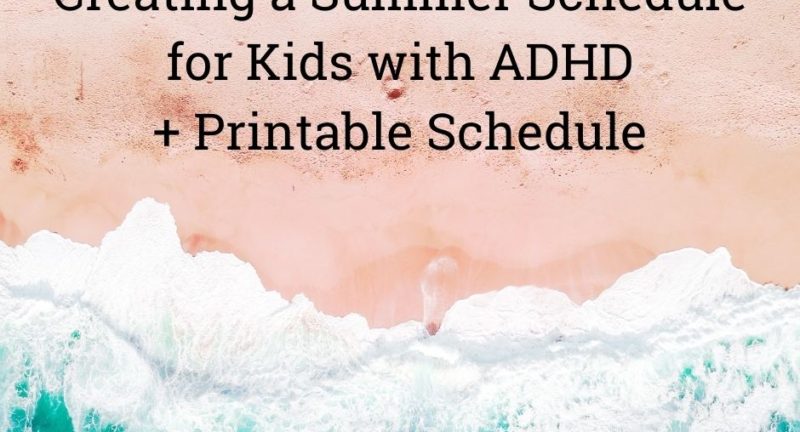
5 Signs that ADHD Is Impacting Your Child’s School Performance
Returning back to school (whether that’s in-person, e-learning, or homeschooling) can be challenging for children and teens struggling with ADHD. For many, the mere thought of sitting still throughout the day is daunting. For others, the amount of focus required for homework can be challenging. As a parent, you might wonder how (and to what extent) ADHD affects your child’s learning.
In this article, we’ll explore five signs that ADHD is impacting your child’s school performance — so you can help your child get the support he or she needs to succeed in school and beyond.
1. Your Child Needs to Move… All the Time
There are three categories of ADHD symptoms: hyperactivity, impulsivity, and inattention. For children who struggle with hyperactivity, it can be difficult to sit still. Your child might:
- Ask to leave the classroom (water breaks, etc) frequently just so he can get up and move
- Stand up and walk around during online courses
While fidgeting itself isn’t bad, your child might miss out on important lessons (or homework instructions) if he or she is constantly walking around, wiggling, or asking to leave the classroom.
A quick note on fidgeting: “Research has shown that children with ADHD learn and focus better when allowed to fidget or squirm in their seats.”
Monica Clark, LPA
So how do you know if fidgeting is helping or harming your child’s academic performance?
“This behavior is often problematic and redirected in the classroom because it presents distractions and creates learning challenges for other students. With learning from home, you can allow your child the freedom to fidget and squirm as much as needed as long as they are focused and completing their work. This may actually enhance their ability to learn and be more accurate in their responses,” says Monica Clark.
TAKEAWAY: The key is to take a look at your child’s work. If the constant need to move is distracting and causing missed learning opportunities, then it’s impeding academic progress. If light fidgeting helps your child, then you want to consider offering a fidget spinner to your child.
2. Classroom Distractions Make It Harder for Your Child to Focus
Distractibility is a common ADHD symptom, and the classroom setting can exacerbate this. From noises in the hallway to curiosity about what a classmate is doing, there are many opportunities to lose focus.
If your child is e-learning:
If your child is learning at home, either virtual school or homeschool, you can help create a distraction-free workspace. You might clear off the dining room table — so there’s nothing left to tinker with. Or, you might set your child up in a dedicated school room free from toys.
Tip: Turn off all notifications when your child is using a tablet or laptop to complete assignments. Pop-ups and notifications can be distracting.
If your child is in-person learning:
As a parent, you’ll have little control over the distractions in your child’s classroom. However, don’t hesitate to connect with your child’s teacher. Another idea is to ask your child’s teacher to seat your child in a location as far away as distractions (like the door) as possible.
3. Your Child Struggles to Get His Thoughts onto Paper
ADHD doesn’t cause a low IQ. So for students with ADHD, poor homework scores aren’t necessarily a reflection of intelligence. Why, then, might your child struggle to put pen to paper?
Children with ADHD often express themselves well orally, but struggle to put their ideas and thoughts into words. Again, this has nothing to do with intelligence. Rather, studies have found that children with ADHD have difficulty organizing thoughts. According to the NIMH, this is a symptom of inattention. Inattention can make it difficult to:
- Organize thoughts
- Determine the proper sequence (such as crafting a paragraph)
- Complete projects, papers, and other writing assignments
Another symptom of inattention: careless spelling mistakes, etc. Disorganized thoughts and careless errors can have a profound impact on your child’s grades.
If you suspect that ADHD is affecting your child’s ability to get his thoughts on paper, you can help:
- Encourage your child to take his own notes (but review them together if you can)
- Keep notes organized such as in a binder or notebook — no loose sheets of paper
- Teach your child mind mapping (or see if your child’s teacher uses it)
What is mind mapping? A mind map for an essay is a drawing that may include pictures and words. It’s a map that visually helps your child organize his or her writing. It can include nouns, verbs, and adjectives, phrases, and images.

Outlines can also help your child organize his or her thoughts. This is especially helpful for high school-aged students who need to write longer, more complex essays.
4. Your Child Misses Due Dates
If your child misses several assignments, it can have a compounding effect on his or her grade. And unfortunately, missed due dates and poor time management can be symptoms of ADHD.
What to do if your child always misses due dates:
To help your child keep track of due dates, teach him how to use an assignment notebook. For example, explain that he should write down each assignment as he learns about it — rather than waiting until the end of the day to write down everything at once.
If your child is in traditional school, ask his or her teacher to initial each day’s assignments to ensure your child didn’t miss anything important. If you’re e-learning or homeschooling, you can check in with your child to make sure he’s logging in the assignment notebook.
Tip: This is a good opportunity to use positive reinforcement for properly logged assignment notebooks.
5. Your Child Complains About School
Children don’t always know how to articulate what exactly is bothering them. For example, if your child is struggling in school, it might manifest in a variety of ways. Your child might:
- Complain about going to school
- Say that school is boring
- Have temper tantrums when doing homework (out of frustration)
If you suspect that ADHD is affecting your child’s school work, you have many options at your disposal. You can, of course, reach out to talk with your child’s teachers. They might see the same warning signs that you do. In addition to implementing these tips, you might benefit from professional help too.
This includes:
- Medication
- Therapy
- Educational services
Mental health care services and educational services can help manage your child’s ADHD so his school work doesn’t suffer any more. In addition, you might benefit from learning as much as possible about ADHD. You may find that this helps you understand your child’s struggles even more clearly. We have a variety of provider-approved books in our shop.
Other Articles and Resources
The following articles focus on school and childhood ADHD.
- [Resources for Parents] Your Guide for Supporting Your Child’s Mental Health While Learning-At-Home
- 7 Tips for Creating a Homework Station for Your Child with ADHD + Printable Homeschool Schedules
- Top 5 Calming Apps for Children (And What to Use as an Alternative)
- Five Ways to Improve Emotional Regulation
- Strategies for Calming the Coronavirus Chaos in Your Home – Interview with NextStep Providers
- 5 Art-Based Activities to Keep Hyperactive Kids Busy
- Anxiety Is Contagious, But So Is Resiliency
- Social Distancing & Exercise: The New Normal
- Surviving Online Learning: A Guide for Parents (Plus, Homeschool Schedule Printables)
- 8 Tips to Help Your Child with ADHD Thrive with E-Learning
- 9 Parenting Tips to Survive and Maybe Even Enjoy Social Isolation With Your Children
Explore Your Next Steps
Here at Next Step 4 ADHD, we take multidisciplinary and holistic approach to your child’s ADHD treatment. Whether your child needs medication management, therapy, or a combination, we can guide you with your next steps. We also offer parent coaching, to help you discover proven strategies to motivate and encourage children with ADHD.
To make an appointment, call us at 502-907-5908.
Related Posts
Creating a Summer Schedule for Your Child with ADHD + Free Printable Schedule
We're still in the early days of Spring, but Summer will be here before we know...
5 Criteria for Positive Parenting with Dr. Jane Nelsen
Are you looking for new methods to teach your child self-discipline,...


